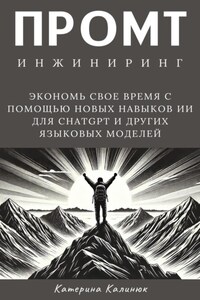In a porcelain bowl floats a single lotus flower, waiting.
Meditation appears to the untrained as a passive activity. To the observer, the practitioner’s body seems poised but relaxed, the breathing even, the face calm. Westerners speak dismissively of men “studying their belly buttons.”
Mohenjo Daro sits easily on a low leather divan, his long legs crossed under him and his arms relaxed, hands resting easily on his knees. Aside from his pose, little about him suggests meditation. He wears a simple silk sweater from Italy and jeans. His face is that of a warrior from ancient Indian art, with rugged features and a pale walnut color. He was, and is, handsome, in a military way, the iron gray in his hair accenting the strong wrinkles in his skin. Nothing about him speaks of the ascetic except that his feet are bare.
His eyes are open. The pupils are huge, black, and blank, the irises almost as dark under heavy brows. And between them, exactly where a Brahmin’s caste mark would be, there is a birthmark, a third eye placed by nature.
The lotus flower. Daro sees it, regards it as a composite of organic material, as a symbol, an object of power. He seeks to know it without effort, to comprehend both the flower before him and the totality of the lotus. And having accomplished this to his satisfaction, he watches this blossom curl and close and then open, the water undisturbed beneath it, the petals of the flower uncurling like stop-action photography. The petals reach their full, erotic opening, and then he watches them wilt and decay, the first touch of orange brown on the edges to the last black organic mold resting on the surface of the unmoving water. And then he begins to restore the flower, working the mold back to the ravaged blossom and then seeking the full bloom of perfect health. When the petals have risen from their watery grave and stand, shriveled but extant, once again attached to the stamen, Daro gives a sudden gasp as intense pain floods his abdomen, snapping his focus from the life of the flower to the dying of his own body.
In a porcelain bowl floats a single lotus flower, unchanged, but the man is writhing on his divan. The spasm passes, and he is angry, although the mood passes as quickly as the unfolding of the flower. He rises and zips on a pair of Spanish leather boots and crosses to the door, the flower abandoned. One hand remains on his abdomen.
He reentered his household when he left his meditation chamber. Outside waited the cares of the world as represented by his aide, Vashni, who bowed. He smiled at her. “Give me a lemon drop, Vash.”
She produced one, her head tilted to one side. She could read that his meditation was not satisfactory. “I have all the reports, sir. Our military situation is good. I have reports from each of our member units with their status and preparedness. Only the Nehru has not reported in, which was to be expected.”
“Excellent.”
“Some of the financial information is late from Delhi because the government closed the exchange early.”
“Really? Whatever for?”
“There was the threat of a terrorist act. Or so the television claims.”
“Any effect on us?”
“None.” She was confident, arrogant.
He was walking now, leaving meditation for business and chewing his lemon drop. She followed him, reading figures on the output of factories and the price quotes of stocks that he assimilated without need of a pen and paper in much the way he could know the fullness of the lotus. Details of military units loyal to him and prepared to act. As he expected. He was making enormous sums of money, also as expected. He went to his office, nodded gravely to his private secretary in greeting as he passed through the outer office and continued to his desk, his attention on Vash unwavering. She had already prepared his laptop with input from her own files and he clicked idly through PowerPoint slides that illustrated the points she was making.
“What a pity that we cannot simply buy the world and fix her,” he said with a smile, looking at the vast sums of money they were compiling.
Vash smiled in return.
Daro touched a button on his desk and ordered tea. Then he reached under his shirt and withdrew a small golden plastic shell and plugged it into his laptop. The screen cleared and another image took its place, then passed away in a swirl of graphics, to be replaced by a word-processing screen.
His private secretary, once a devout Muslim, came in with a tray of tea and set it on his desk. He paused expectantly, and Daro motioned him to sit and join them. “Really, Ali, you might as well drink tea with us. A few more people might help create a sense of drama.”
Both of them laughed. “Drama” was usually a word of opprobrium to the believers. In this case, the absence of drama was clear, and almost comic given the gravity of the moment.








